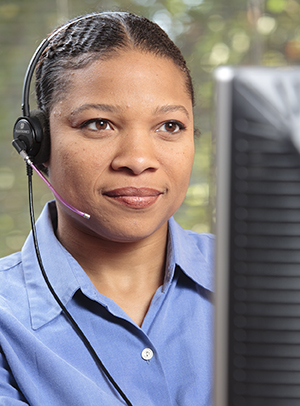About Poison Control Centers

What should you do if you accidentally give your child the wrong medicine or the wrong dose? Or if your child accidentally swallows too much medicine? Or if you splash bleach in your eyes while cleaning your home? Fast help is a phone call away at poison control centers. These are facilities that help people with poisoning emergencies.
Children and adults can easily swallow or inhale substances that may be toxic. Or they can be exposed through the skin or eyes. When this happens, you need to take quick action to limit the harm. Calling poison control can give you the instructions to handle a poison emergency.
Poisoning facts
Poisoning is the leading cause of death from unintentional injury, the CDC says.
Poisoning tends to be more common in young children. Most of all reported poisonings happen in children younger than 6 years old. But poisoning is often more serious in adults.
Poisoning can be caused by swallowing:
-
Personal care products or cosmetics
-
Medicines, such as pain medicine and cough-and-cold medicines
-
Cleaning products, such as detergent pods
-
Poisonous plants, including mushrooms
-
Batteries
-
Illegal drugs
How poison control centers work
All poison control centers are reached by calling 800-222-1222. This is a national toll-free number. It can be used to reach a poison control center from anywhere in the U.S. poison control centers are always open, 24 hours a day, 7 days a week, 365 days a year. Online help is also available. Poison control centers are staffed by pharmacists, healthcare providers, nurses, and other experts who talk to you over the phone, or by online chat. They can give emergency advice in more than 150 languages. They also have devices to communicate with the hearing impaired. You can also reach them through the control centers' online tool for recommendations based on age, substance, and amount.
Poison control center staff can explain what to do when there's been a poisoning. They can also answer questions about poisonous substances. They can give tips and advice to help prevent a poison emergency. Following their advice quickly may mean you don't need to see your healthcare provider or go to the hospital. Poison control center staff also follow up after a poisoning emergency call, usually both with the patient and healthcare providers caring for the patient They make sure that there are no new symptoms and the person is OK.
When to contact poison control
Contact poison control as soon as you think someone might be poisoned. Don't wait for signs and symptoms of poisoning. They often don't occur right away. Contact poison control if you know or think that someone has:
-
Taken too much medicine, both prescription and over-the-counter medicines have risk for poisoning
-
Taken medicine that was not prescribed or intended for them
-
Been bitten or stung by an insect and is showing signs of an allergic reaction
-
Swallowed a cleaning product or household product, such as a pesticide, antifreeze, motor oil, or detergent pod
-
Swallowed a personal care product or cosmetic, such as hair gel or perfume
-
Had too much alcohol, prescription medicine, or illegal drugs, especially if they are unconscious and or having a seizure
-
Gotten a toxic substance on their skin
Post the poison control phone number ( 800-222-1222) in a spot in your home that is easy for anyone to see. Help is also available online at www.poison.org. Tell family members why the poison control centers are important. Let them know where the number or website is posted. Add poison control as a contact in your cell phone.